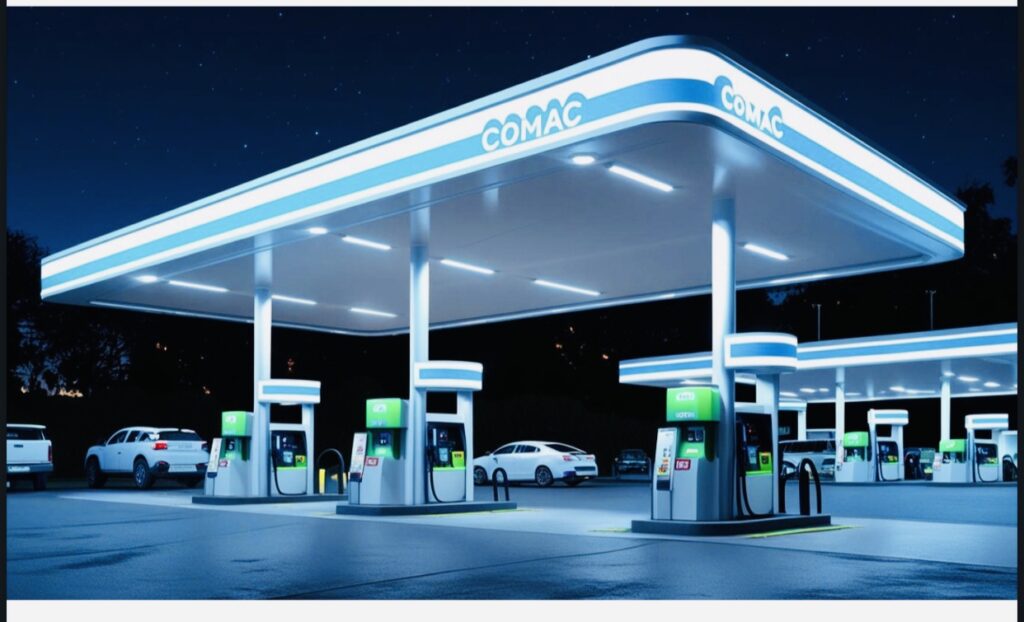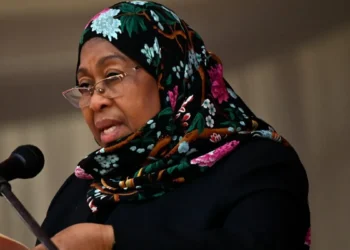Conventional fuel stations in Ghana could soon evolve into hubs for electric vehicle (EV) battery swaps as innovation in mobility continues to accelerate, Minister for Energy and Green Transition, John Jinapor, has projected.
Speaking on the second day of the Future of Energy Conference (FEC) 2025 in Accra, the Minister said that advances in EV battery design particularly in size and efficiency are paving the way for a revolutionary model in which motorists replace depleted batteries in minutes instead of waiting hours to recharge.
“The batteries for these EV vehicles are getting smaller.
“What I see is that in future, these petrol, diesel or fossil fuel stations will become EV battery stations and people will no longer have to park their cars to charge their vehicles over minutes or hours.”
John Jinapor, Minister for Energy and Green Transition
His remarks come at a time when Ghana and other African countries are grappling with the dual challenge of reducing carbon emissions while expanding access to reliable and affordable transport and energy solutions.
The Minister’s projection aligns with a global shift toward electrification of transport. Battery swap models, already being piloted in parts of Asia, offer a potential solution to one of the key bottlenecks in EV adoption: charging time.

“We should be able to drive through these same filling stations and just replace your battery and keep driving on.
“Through innovation, I am very confident that we can make use of these products or some of these filling stations.”
John Jinapor, Minister for Energy and Green Transition
Instead of waiting for batteries to recharge, drivers could pull into converted filling stations, exchange their drained battery for a fully charged one, and continue their journey seamlessly.
Industry experts say this model could significantly boost consumer confidence in EVs, particularly in regions like Africa where grid reliability and charging infrastructure remain challenges.
According to Hon. Jinapor, Ghana’s energy transition framework is deliberately positioning the country to embrace such innovations.
The framework, which outlines pathways to decarbonize power and transport, emphasizes the integration of renewable energy, electric mobility, and new financing models to drive sustainability.
Private Sector Urged to Lead Transition

On the sidelines of the conference, Ben Boakye, Executive Director of the Africa Centre for Energy Policy (ACEP), reinforced the Minister’s call by urging private fuel station investors to begin adapting their infrastructure for the future of transport.
“A lot of EVs are coming into the system.
“It is up to the private people who have invested in filling stations to now begin to look at how to make that shift and be aggressive at it.”
Ben Boakye, Executive Director of the Africa Centre for Energy Policy (ACEP)
Boakye noted that while the government can provide the enabling environment, the private sector must seize the opportunity to reimagine service stations as energy hubs—combining traditional fueling, EV charging, and potentially battery swapping services.
Ghana has set ambitious goals to expand renewable energy integration, diversify energy sources, and promote clean mobility as part of its energy transition framework.
The introduction of EVs and the conversion of fuel stations into hybrid or fully electric hubs could reduce the country’s reliance on imported fossil fuels, cut emissions, and create new green jobs.

Analysts, however, caution that large-scale battery swap infrastructure would require strong policy direction, standardization of battery technologies across manufacturers, and significant private capital.
Yet, with demand for EVs rising and global automakers increasing their footprint in Africa, the prospects for such a transformation are becoming more realistic.
The conference continues to highlight that Africa’s energy transition is not just about power generation but also about reshaping transport, industry, and community livelihoods.
As both Jinapor and Boakye stressed, the transformation of conventional filling stations into EV battery and charging hubs could be one of the most visible and impactful symbols of this shift.
With innovation accelerating and private investors being called to action, the transition from petrol pumps to EV battery swap points may arrive sooner than expected, marking a pivotal step in Ghana’s journey toward a green and sustainable future.
READ ALSO: A Smart Move to Save the Cedi – Women in Forex Ghana Prez Hails BoG Directive



















